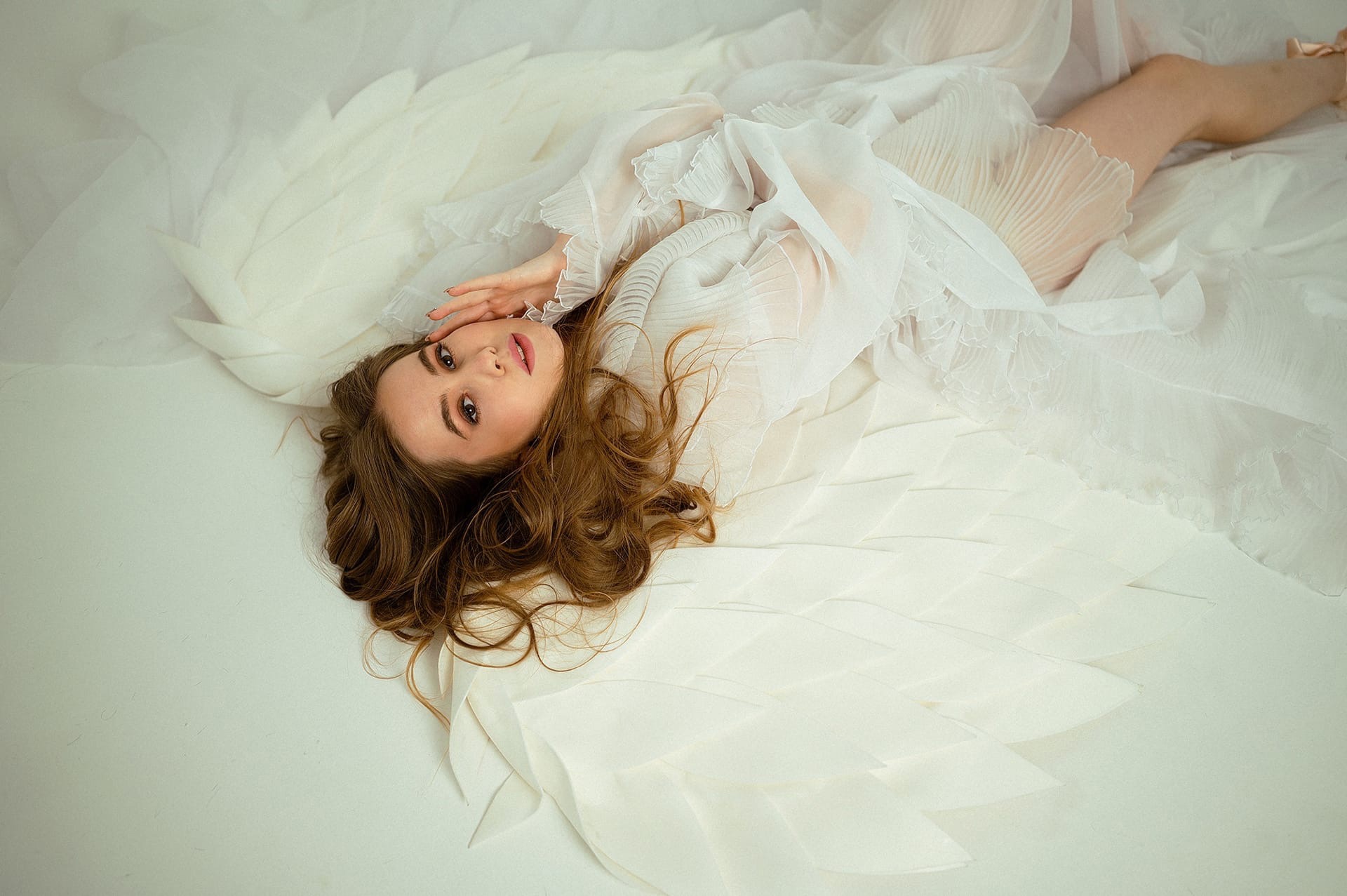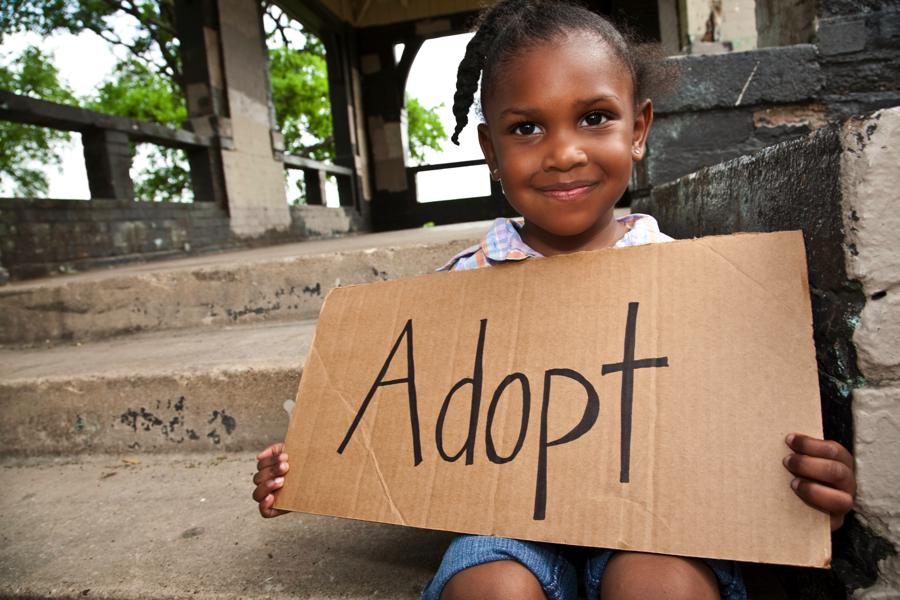Understanding Adult Baby Dreams
The Psychology Behind AB/DL Behavior
Understanding adult baby dreams can be a complex and multifaceted topic, encompassing various psychological factors and underlying motivations.
At its core, an adult baby (AB) is someone who has a desire to regress to a state of infancy or childhood, often characterized by the adoption of infantile behavior and attire.
The psychology behind AB/DL (Adult Baby/Diaper Lover) behavior is rooted in various psychological theories, including regression, escapism, and attachment theory.
Regression One possible explanation for AB/DL behavior is regression, a defense mechanism where individuals cope with stress or anxiety by reverting to an earlier stage of development.
During times of high stress or emotional overwhelm, the individual may feel an overwhelming urge to return to a state of childhood innocence and security, which is often associated with feelings of comfort, safety, and protection.
Escapism AB/DL behavior can also be seen as a form of escapism, where individuals temporarily escape from the stresses and responsibilities of adulthood by immersing themselves in a fantasy world of infantile bliss.
This escapism can provide a temporary reprieve from the pressures of everyday life, allowing individuals to recharge and cope with their emotional needs in a safe and controlled environment.
Attachment Theory Another perspective on AB/DL behavior is attachment theory, which posits that human beings have an innate need for connection and attachment, particularly in early childhood.
In this context, the desire to adopt infantile behavior and attire can be seen as a way of seeking comfort, security, and reassurance from a caregiver or authority figure, often associated with feelings of safety and protection.
The various motivations underlying AB/DL behavior are diverse and multifaceted, reflecting the complex interplay between psychological factors, emotional needs, and individual experiences.
Some individuals may identify with specific subcultures within the AB/DL community, such as the ABDL (Adult Baby/Dirty Diaper Lover) or the DDLG (Dom/sub Lifestyle/Gear) communities, each with their unique set of rituals, norms, and values.
The following is a list of possible underlying motivations behind AB/DL behavior:
- Nostalgia: A desire to recapture the comfort, security, and sense of innocence associated with childhood.
- Coping mechanism: A way of coping with stress, anxiety, or emotional overwhelm by temporarily escaping into a fantasy world of infantile bliss.
- Sexual arousal: The use of infantile attire and behavior as a means of achieving sexual gratification or arousal.
- Social connection: A desire for social connection, community, and acceptance within the AB/DL subculture.
- Cognitive dissonance reduction: An attempt to reconcile conflicting desires or values by adopting a contradictory lifestyle or identity.
It is essential to approach this topic with sensitivity and an open mind, recognizing that individual experiences and motivations may vary widely within the AB/DL community.
By acknowledging and respecting these complexities, we can foster greater understanding, empathy, and acceptance of individuals who identify as part of the AB/DL community.
Childhood Trauma or Attachment Issues
The concept of adult baby dreams refers to a phenomenon where adults experience recurring dreams or fantasies involving themselves as infants, often in scenarios that are typically associated with childhood, such as wearing diapers, drinking from bottles, or being treated like a baby. These dreams can be unsettling and may raise questions about their underlying causes and meanings.
One possible explanation for adult baby dreams is related to unresolved childhood trauma or attachment issues. In cases where individuals experienced neglect, abuse, or insecure attachment during their formative years, their brains may have developed coping mechanisms that manifest in the form of these fantasies. These dreams can serve as a way for the person to recreate a sense of comfort and security from their past, albeit in an unrealistic and potentially disturbing manner.
Attachment issues refer to difficulties forming and maintaining healthy relationships with others due to early life experiences that impacted the individual’s attachment style. People who experienced insecure or neglectful attachments may have developed a deep-seated need for comfort, love, and security, which can be fulfilled by imagining themselves in an infantile state.
Childhood trauma, on the other hand, involves experiencing events that cause significant distress and impairment in daily functioning during childhood. This trauma can lead to various psychological symptoms, including anxiety, depression, or substance abuse. Adult baby dreams may represent a manifestation of unresolved trauma, with the individual attempting to recreate a sense of control and agency from their past experiences.
It is essential to note that adult baby fantasies are not exclusive to individuals with traumatic backgrounds. Research suggests that these fantasies can also be linked to broader psychological themes, such as a desire for relaxation, comfort, or escapism. Some people may simply find the idea of being an adult baby appealing due to its association with carefree childhood experiences.
In terms of therapeutic implications, understanding adult baby dreams as related to underlying trauma or attachment issues can be beneficial for individuals seeking to address these concerns. By exploring the root causes of their fantasies, individuals can gain insight into their psychological dynamics and develop more effective coping strategies for managing stress, anxiety, and other symptoms.
However, it is crucial to approach this topic with sensitivity and awareness that adult baby fantasies are not inherently pathological. Individuals who experience these dreams should be encouraged to explore them in a safe and non-judgmental space, rather than pathologizing their experiences or stigmatizing themselves for having these fantasies.
In conclusion, understanding adult baby dreams as related to childhood trauma or attachment issues requires a nuanced approach that acknowledges the complexity of human psychological experiences. By recognizing the potential connections between these fantasies and broader psychological themes, individuals can begin to address underlying concerns and develop more effective coping strategies for managing stress and promoting overall well-being.
Childhood experiences can shape adult desires, including the need for nurturing and protection. Research at Harvard University suggests that trauma during childhood can lead to attachment issues in adults, potentially contributing to the desire for infantilization. Some individuals may seek comfort and security through regression.
Adult baby dreams are a complex and multifaceted phenomenon that can have various meanings depending on the individual’s experiences, desires, and psychological makeup.
The desire to be an adult baby (AB) often stems from a deep-seated need for nurturing and protection, which may originate from childhood. People who experienced trauma or neglect during their formative years may feel an intense longing for the safety and comfort of infancy.
Research conducted at Harvard University suggests that childhood trauma can lead to attachment issues in adults, potentially contributing to the desire for infantilization. Attachment issues can manifest as a need for care, comfort, and protection, which is often associated with the adult baby subculture.
Sometimes, individuals may seek solace in regression, or reverting to a younger state of mind, as a way to cope with stress, anxiety, or feelings of vulnerability. This phenomenon is not unique to the adult baby community and can be observed in various forms of escapism or nostalgia.
Adult baby dreams can also represent unresolved childhood issues or unmet emotional needs. The dreamer may be attempting to access repressed memories, emotions, or desires from their past, often with a sense of longing or regret.
In some cases, adult baby dreams may symbolize a desire for freedom from responsibility or stress in waking life. The dreamer may be seeking a temporary reprieve from the burdens and expectations associated with adulthood.
It is essential to note that adult baby dreams can have different meanings for different people, and individual interpretations should take into account personal experiences, desires, and motivations.
Key Takeaways:
- Childhood trauma can contribute to attachment issues in adults, potentially leading to a desire for infantilization.
- Adult baby dreams may represent unresolved childhood issues or unmet emotional needs.
- The desire to be an adult baby can stem from a need for nurturing and protection.
- Regression may serve as a coping mechanism for stress, anxiety, or feelings of vulnerability.
Suggested Further Reading:
For further understanding on the topic, consider exploring the following resources:
- The research conducted by Dr. Bessel van der Kolk at Harvard University on the effects of childhood trauma.
- The works of Carl Jung on regression and the collective unconscious.
- Books and online communities focused on adult baby culture, such as “The AB Community” or “AB Forums”.
The Role of Fantasy and Escapism
The concept of adult baby dreams can be complex and multifaceted, requiring a nuanced understanding of human psychology and the role of fantasy and escapism in our lives. At its core, an adult baby dream refers to a recurring or isolated episode where an individual experiences a sense of being a child again, often in conjunction with infantile physical characteristics such as diaper dependency or baby-like behavior.
This phenomenon can be understood through various psychological lenses, including the realm of fantasy and escapism. Fantasies serve as coping mechanisms for dealing with the stresses and demands of adulthood, offering temporary reprieves from the complexities of real-life responsibilities. For some individuals, adult baby fantasies may represent an unconscious longing to recapture the carefree innocence of childhood, where decisions were made by others and everyday concerns were minimal.
Escapism is another crucial aspect of understanding adult baby dreams. It involves using fantasy as a means to temporarily escape from or avoid the stresses and difficulties associated with adulthood. Adult baby fantasies can provide an outlet for feelings of vulnerability, anxiety, or inadequacy, allowing individuals to momentarily surrender their adult roles in favor of a more nurturing environment.
On a deeper psychological level, adult baby dreams may be linked to unresolved conflicts surrounding dependency needs. The desire to be cared for, comforted, and protected can manifest as a longing for the unconditional love and support provided by caregivers during childhood. This nostalgia for infantile dependence can be particularly pronounced in individuals who have experienced trauma or neglect during their formative years.
Furthermore, adult baby fantasies often revolve around themes of surrender, trust, and vulnerability – all essential components of the human experience. In embracing these feelings, adults may find temporary solace in the idea of being cared for by others, thereby momentarily alleviating some of life’s burdens and responsibilities. This phenomenon underscores the intricate interplay between fantasy and reality in our lives.
From a therapeutic perspective, exploring adult baby dreams can provide valuable insights into an individual’s psychological dynamics, including their coping mechanisms, attachment styles, and relationship patterns. A nuanced understanding of these aspects can ultimately inform treatment strategies aimed at promoting healthy growth, self-awareness, and emotional regulation.
In conclusion, adult baby dreams embody a rich tapestry of themes and emotions, reflecting our fundamental human desire for care, comfort, and connection. By examining the role of fantasy and escapism in these experiences, we can gain a deeper understanding of our own psychological needs and the various ways in which we navigate the complexities of adulthood.
Adult Baby (AB) fantasies offer a temporary escape from adult responsibilities and stress. According to research by psychologist Dr. Karen Barad at the University of California, fantasies serve as a coping mechanism for emotional distress. In this context, AB fantasies provide an outlet for adults to temporarily regress into a state of infancy.
Adult Baby (AB) fantasies refer to a specific type of fantasy or role-play where adults, often referred to as “adult babies,” imagine themselves as infants. This phenomenon has gained significant attention in recent years, and researchers have sought to understand the underlying motivations and psychological drivers behind these fantasies.
According to Dr. Karen Barad’s research at the University of California, AB fantasies serve as a coping mechanism for emotional distress. When individuals experience stress or anxiety related to adult responsibilities, they may engage in fantasies as a way to temporarily escape from these pressures. In this context, the fantasy of being an adult baby provides a safe space for individuals to regress into a state of infancy, thereby reducing feelings of overwhelm and promoting relaxation.
The appeal of AB fantasies can be attributed to several factors. Firstly, they allow individuals to momentarily relinquish the burdens of adulthood, including financial responsibilities, relationship conflicts, and work-related stressors. By embracing a more childlike persona, adults may feel a sense of liberation from the constraints and expectations associated with adulthood.
Secondly, AB fantasies often involve elements of nurturing and caregiving, which can be deeply satisfying for individuals who crave attention and affection. In these fantasies, the adult baby is typically cared for by a caregiver or “nanny,” providing a sense of security and comfort. This dynamic can evoke feelings of safety and protection, reminiscent of the early stages of childhood.
Lastly, AB fantasies may also serve as a way to explore and express aspects of oneself that are considered taboo in adult society. In this context, the fantasy provides a safe space for individuals to experiment with their identities and desires without fear of judgment or reprisal.
In conclusion, understanding Adult Baby dreams requires an exploration of the psychological motivations behind these fantasies. By acknowledging the role of AB fantasies as a coping mechanism for emotional distress, we can gain insight into the complexities of adult human psychology and the various ways individuals seek to manage stress and anxiety.
Interpreting Adult Baby Dreams
Symbols and Meanings in AB Dreams
In the realm of dreams, the concept of an adult baby can be a fascinating and multifaceted symbol that warrants exploration. When we interpret adult baby dreams, it’s essential to consider the context and emotions evoked during the dream itself.
The adult baby archetype can represent various aspects of ourselves or our lives, including vulnerability, dependency, and regression. This symbolism may emerge due to unresolved issues from childhood or as a coping mechanism for stress and anxiety in adulthood.
One common interpretation of an adult baby dream is a desire for comfort, security, and nurturing. The adult baby may symbolize the need for reassurance, emotional support, and care that we may not be receiving in our waking lives. This could be related to issues with relationships, work, or personal growth.
In some cases, an adult baby dream can represent a fear of being overwhelmed by responsibility or a sense of overwhelm itself. The dreamer might feel like they’re losing control or struggling to cope with the demands of everyday life, leading to feelings of regression and helplessness.
The adult baby may also signify a hidden part of ourselves that we’ve suppressed or repressed due to societal expectations or past traumas. This can manifest as a desire for self-care, relaxation, and indulgence in activities that bring joy and comfort.
Additionally, the adult baby dream could be linked to our inner child or shadow self. The dreamer may need to confront unresolved issues from childhood or integrate their repressed emotions into their conscious awareness.
Symbols associated with adult babies, such as diapers, onesies, or bottles, can also carry distinct meanings depending on the context of the dream. For instance, a dirty diaper might represent guilt, shame, or feelings of inadequacy, while a bottle might symbolize nourishment and sustenance for our emotional or psychological well-being.
It’s essential to remember that dreams are highly personal and subjective, making it crucial to reflect on your own emotions, experiences, and thoughts when interpreting an adult baby dream. By examining the nuances of your subconscious mind, you may uncover hidden insights and desires that can guide you toward growth, healing, and self-awareness.
Ultimately, the symbolism of an adult baby in a dream encourages exploration, introspection, and acceptance of our vulnerabilities and imperfections. By embracing these qualities, we can cultivate empathy, compassion, and understanding for ourselves and others, leading to greater emotional intelligence and inner peace.
Nursing and Diapering: Symbolism and Anxiety
Interpreting adult baby dreams, nursing, and diapering can be a complex and nuanced process. Dreams are a way for our subconscious to communicate with us, often revealing underlying desires, fears, and anxieties. In the context of adult babies, these dreams may symbolize regression, vulnerability, or a need for nurturing.
Dreams about being an adult baby may also be linked to feelings of powerlessness or helplessness in waking life. This can be due to various reasons such as trauma, anxiety, or stress. The subconscious mind may recreate this sense of safety and protection by incorporating elements like diapers, nursing, or being cared for.
The symbolism behind adult baby dreams often revolves around themes of vulnerability and dependence. Being an adult baby can represent a desire for comfort and security, which may be lacking in one’s waking life. This could be due to various factors such as a fear of abandonment, a need for validation, or unmet emotional needs.
The act of nursing in these dreams may symbolize the need for emotional nourishment, guidance, or reassurance. It can also represent a desire for unconditional love and acceptance. On the other hand, it could be a manifestation of one’s own nurturing qualities, such as caring for others or providing comfort to those who need it.
Diapering in adult baby dreams often signifies a need for protection or guidance from an authority figure. This can represent feelings of inadequacy, fear, or uncertainty about the future. In some cases, it may also symbolize a desire for accountability and responsibility.
The following are some common scenarios that may occur in adult baby dreams and their possible meanings:
- Nursing from an unknown caregiver: This may represent the need for emotional guidance or reassurance, possibly due to a lack of self-confidence.
- Wearing diapers in public: This could be a manifestation of feelings of shame, embarrassment, or fear of being exposed or vulnerable.
- Falling into a diaper: This scenario may symbolize a loss of control or powerlessness in a specific situation.
- Becoming overwhelmed by diaper-related needs: This could represent anxiety about meeting one’s responsibilities or feeling overwhelmed by demands from others.
It is essential to note that dreams are highly personal and subjective. The meaning of an adult baby dream can only be understood within the context of the individual who experienced it. By exploring these themes, individuals may gain insight into their underlying desires, fears, and anxieties.
Nursing or wearing diapers in dreams may indicate a desire for care, security, or comfort. These symbols can also be linked to anxiety related to adult responsibilities, such as childcare or financial obligations. In the context of stress management, AB fantasies provide an escape from these concerns.
Nursing or wearing diapers in dreams may be a reflection of deep-seated desires for care and comfort, often stemming from feelings of insecurity or fear of abandonment.
On the other hand, these symbols can also suggest anxiety related to adult responsibilities, such as childcare or financial obligations. The unconscious mind may be attempting to cope with the weight of these responsibilities by fantasizing about a return to a state of childhood innocence and security.
In the context of stress management, AB (Adult Baby) fantasies provide an escape from the overwhelming concerns and pressures associated with adult life. By temporarily relinquishing responsibility and embracing a more childish role, individuals may find solace in the comforting idea of being cared for and nurtured.
It is essential to note that dreams are highly personal and subjective, so it’s crucial to consider individual experiences and emotional states when interpreting AB dream meanings. Additionally, exploring underlying desires and anxieties through therapy or self-reflection can help individuals better understand their subconscious thoughts and emotions.
The significance of Adult Baby fantasies also extends beyond the realm of dreams, as they may be an expression of a broader psychological phenomenon known as “reversal,” where an individual temporarily adopts a role that is opposite to their usual adult identity.
In conclusion, interpreting AB dreams or fantasies requires a nuanced understanding of the complex interplay between desires for care and comfort, anxiety related to adult responsibilities, and the need for escapism from stress. By embracing this complexity and exploring one’s own experiences and emotions, individuals can gain insight into their subconscious thoughts and develop a more profound understanding of themselves.
The Relationship Between Dreams and Reality
The phenomenon of adult baby dreams can be a puzzling and fascinating aspect of one’s subconscious mind. When interpreting these dreams, it’s essential to understand that they often symbolize a desire for security, comfort, and nurturing that may be lacking in one’s waking life.
Adult babies in dreams can represent the individual’s need for protection, care, and emotional support from others. This could stem from unresolved childhood issues or feelings of vulnerability and helplessness in adult life. The dream may also suggest a longing for a return to an earlier, more innocent state where responsibilities and cares were fewer.
On another level, the adult baby dream can be seen as a manifestation of repressed desires or unconscious fantasies related to infantilism. This aspect can be particularly revealing in the context of an individual’s attachment style, emotional regulation strategies, or unresolved trauma. By examining these underlying dynamics, it becomes possible to identify potential areas for personal growth and development.
The relationship between dreams and reality is intricate and often shrouded in mystery. While dreams are a product of our brain’s attempt to process and consolidate memories, emotions, and experiences, they can also serve as a window into the unconscious mind and its connections to our waking life.
When examining adult baby dreams in relation to reality, it is crucial to consider various factors such as the individual’s life circumstances, emotional state, and personal history. By understanding these contextual elements, we can begin to unravel the hidden meanings behind these enigmatic dreams and their relevance to real-life experiences.
In this sense, adult baby dreams can serve as a mirror reflecting our inner world, revealing unresolved conflicts, unmet needs, or unconscious fears that may be influencing our thoughts, emotions, and behaviors. By confronting and addressing these underlying issues, we can begin the process of integrating the fragmented aspects of our psyche and achieving greater emotional balance and self-awareness.
It is also worth noting that adult baby dreams can sometimes be a manifestation of external pressures or societal expectations. In today’s fast-paced world, individuals may feel overwhelmed by responsibilities, stressors, and expectations from others. These external factors can contribute to feelings of exhaustion, burnout, and a longing for simpler times, which may manifest as an adult baby dream.
Ultimately, interpreting adult baby dreams requires a nuanced understanding of the individual’s psychological landscape and the complex interplay between their conscious and unconscious mind. By approaching these enigmatic dreams with empathy, self-reflection, and an open mind, we can begin to unravel their secrets and unlock new insights into our inner world.
Research by the American Psychological Association highlights that dreams often reflect unresolved issues in our waking lives. For those experiencing stress or anxiety, AB dreams can serve as a way to momentarily release pentup emotions.
When it comes to understanding adult baby dreams, research suggests that these recurring nighttime visions can be a manifestation of unresolved issues or unprocessed emotions from our waking lives. The American Psychological Association has found that dreams often serve as a reflection of our unconscious thoughts and feelings, which can provide valuable insights into our mental state.
For individuals experiencing stress or anxiety, adult baby dreams may function as a release valve for pent-up emotions. During REM sleep, the brain processes and consolidates memories, and in some cases, this can manifest as vivid and often disturbing dreams. Adult baby dreams in particular may represent a coping mechanism, allowing the dreamer to temporarily regress and escape from the pressures of reality.
It’s worth noting that adult baby dreams are not necessarily indicative of a psychological disorder or a fixation on infantilism. Rather, they can be seen as an attempt by the brain to find a sense of comfort and security in times of uncertainty or stress. This interpretation is supported by research in the field of trauma psychology, which suggests that adults who experience traumatic events may exhibit behaviors reminiscent of childhood regression.
In this context, adult baby dreams can be viewed as a symbolic representation of the desire for safety, protection, and care. The dreamer may be unconsciously seeking a return to a more innocent or carefree state, often associated with infancy. This can be particularly true for individuals who have experienced trauma or neglect in their early lives.
Additionally, adult baby dreams may also be linked to the concept of ” regression,” which refers to the tendency for adults to revert back to earlier stages of development under stress or pressure. Research has shown that this phenomenon is more prevalent among individuals with a history of childhood trauma or abuse, who may have developed coping mechanisms that involve regressing to a state of increased vulnerability and dependency.
Ultimately, the meaning of an adult baby dream depends on the individual’s unique experiences, emotions, and psychological makeup. By exploring the underlying themes and emotions present in the dream, the dreamer can gain insight into their unconscious thoughts and feelings, which may help them better manage stress and anxiety in waking life.
It’s also essential to recognize that adult baby dreams are not a sign of weakness or immaturity but rather an expression of the human need for comfort, security, and protection. By acknowledging this fundamental aspect of human nature, individuals can begin to understand their adult baby dreams as a natural response to stress and anxiety rather than a pathology or psychological disorder.
Furthermore, understanding and interpreting adult baby dreams can be beneficial in developing effective coping strategies for managing stress and anxiety. By acknowledging the emotional needs that underlie these dreams, individuals can learn to address these needs in a more constructive way, promoting overall mental well-being and resilience.
- Bus Into The City Dream Meaning: What Does Taking A Bus Into The City Mean In Your Dream? - September 16, 2024
- Bull Dream Meaning: What Does A Bull Symbolize In Your Dream? - September 15, 2024
- Bulletproof Vest Dream Meaning: What Does A Bulletproof Vest Represent In Your Dream? - September 15, 2024







